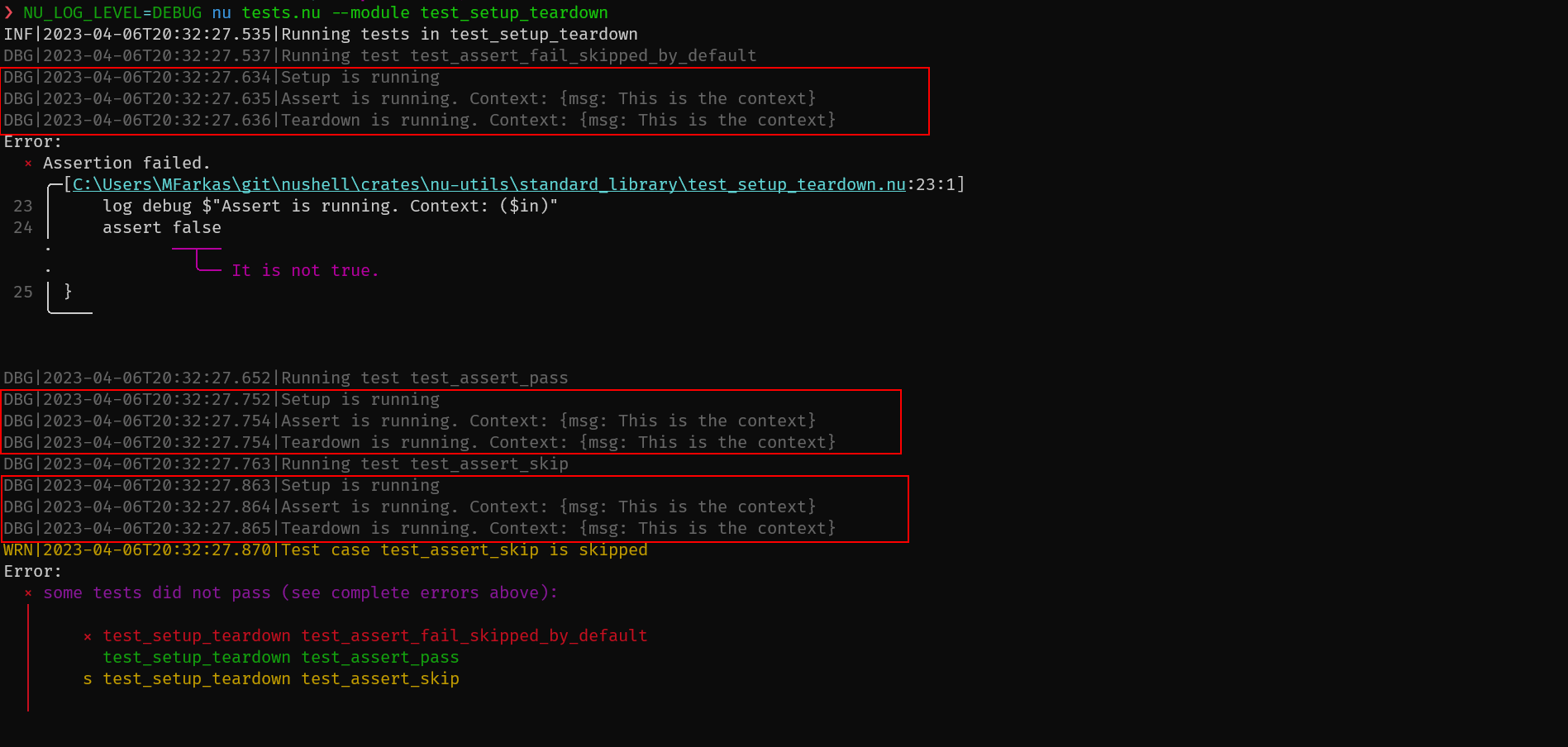# Description
- Log levels are now exported members of `std log`, e.g. `std log
CRITICAL_LEVEL`
- Added `std log custom` command that allows to declare custom message
format (actual message replaces `%MSG%` in the template) with
user-defined log level.
# User-Facing Changes
New possibilities included in description
# Tests + Formatting
<!--
Don't forget to add tests that cover your changes.
Make sure you've run and fixed any issues with these commands:
- `cargo fmt --all -- --check` to check standard code formatting (`cargo
fmt --all` applies these changes)
- `cargo clippy --workspace -- -D warnings -D clippy::unwrap_used -A
clippy::needless_collect -A clippy::result_large_err` to check that
you're using the standard code style
- `cargo test --workspace` to check that all tests pass
- `cargo run -- crates/nu-std/tests/run.nu` to run the tests for the
standard library
> **Note**
> from `nushell` you can also use the `toolkit` as follows
> ```bash
> use toolkit.nu # or use an `env_change` hook to activate it
automatically
> toolkit check pr
> ```
-->
# After Submitting
<!-- If your PR had any user-facing changes, update [the
documentation](https://github.com/nushell/nushell.github.io) after the
PR is merged, if necessary. This will help us keep the docs up to date.
-->
Move test runner to standard library.
Originated from #8819
# After Submitting
I'll update the documentation about testing:
http://www.nushell.sh/book/testing.html
---------
Co-authored-by: Mate Farkas <Mate.Farkas@oneidentity.com>
# Description
As in other testing frameworks, the `setup` runs before every test case,
and the `teardown` after that. A context can be created in `setup`,
which will be in the `$in` variable in the test cases, and in the
`teardown`. The `teardown` is called regardless of the test is passed,
skipped, or failed.
For example:
```nushell
use std.nu *
export def setup [] {
log debug "Setup is running"
{msg: "This is the context"}
}
export def teardown [] {
log debug $"Teardown is running. Context: ($in)"
}
export def test_assert_pass [] {
log debug $"Assert is running. Context: ($in)"
}
export def test_assert_skip [] {
log debug $"Assert is running. Context: ($in)"
assert skip
}
export def test_assert_fail_skipped_by_default [] {
log debug $"Assert is running. Context: ($in)"
assert false
}
```

# After Submitting
I'll update the documentation.
---------
Co-authored-by: Mate Farkas <Mate.Farkas@oneidentity.com>